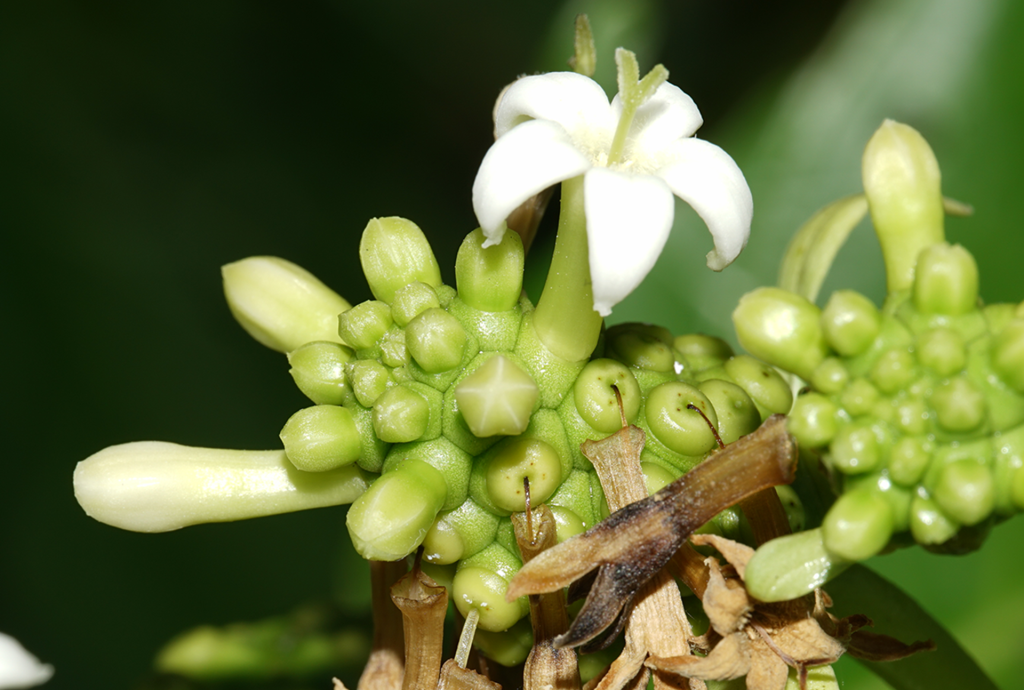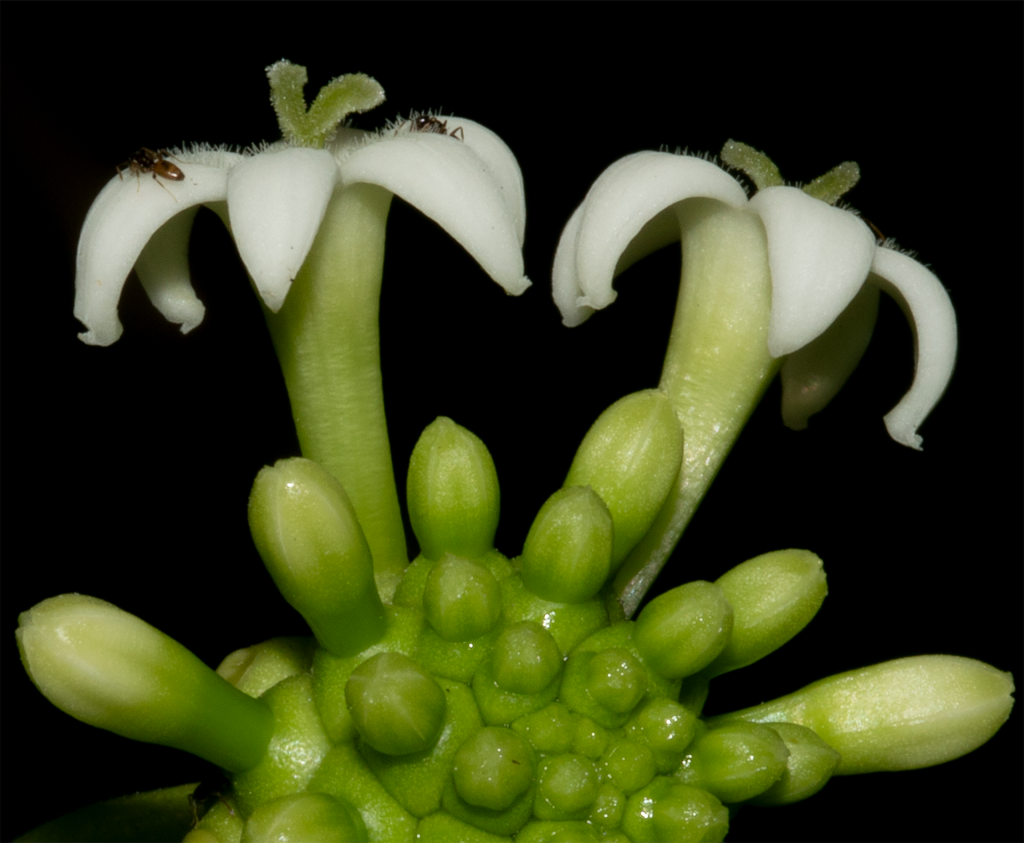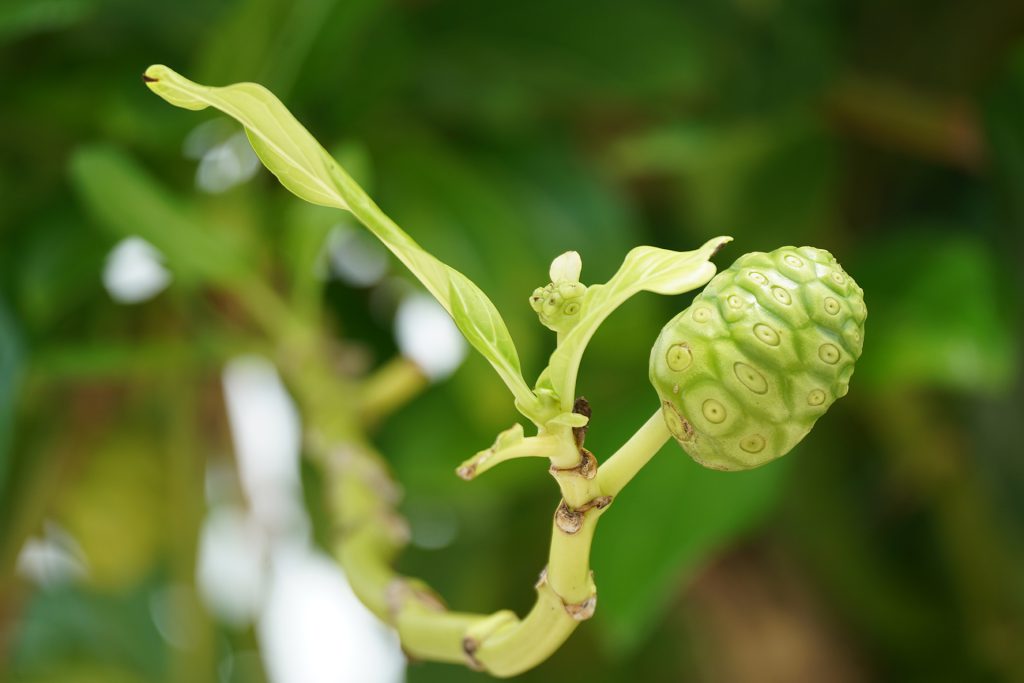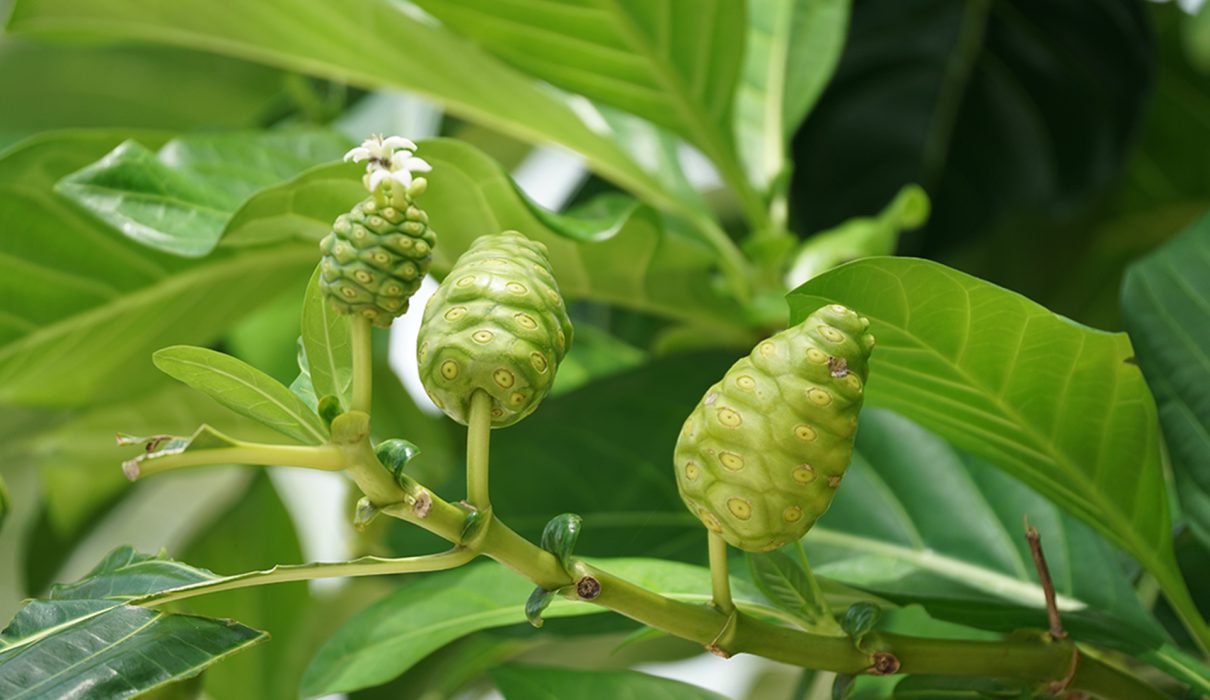Morinda citrifolia, commonly known as the noni fruit or locally in the Maldives as “Ahivah,” stands as a testament to the rich botanical diversity of the region. Belonging to the coffee family, Rubiaceae, this fruit-bearing tree boasts a significant presence in Southeast Asia and Australasia, with its seeds spread across the Pacific by Polynesian sailors. Today, it is cultivated across the tropics and has become naturalized in various habitats.
Taxonomy:
- Kingdom: Plantae
- Clade: Tracheophytes
- Clade: Angiosperms
- Clade: Eudicots
- Clade: Asterids
- Order: Gentianales
- Family: Rubiaceae
- Genus: Morinda
- Species: M. citrifolia
- Binomial name: Morinda citrifolia



The noni fruit, recognized by its various names including great morinda, Indian mulberry, beach mulberry, and awl tree, holds a prominent place in the cultural and culinary landscape of the Maldives. Its significance extends beyond its edible fruits, as it finds applications in traditional medicine as well.
Noni fruit juice, produced locally by Mifco Maldives, further underscores its importance in the Maldivian context. This juice, derived from the ripe fruits of Morinda citrifolia, offers a refreshing and nutritious beverage option to locals and visitors alike.
Growing Habitats: Morinda citrifolia thrives in a variety of environments, from shady forests to open rocky or sandy shores. It exhibits remarkable resilience, tolerating saline soils, drought conditions, and secondary soils. Found in volcanic terrains, lava-strewn coasts, and even coral atolls, this adaptable tree can grow up to 9 meters tall.
Fruit Characteristics: The noni fruit is a collective of multiple fleshy fruits, emitting a pungent odor as it ripens. While its aroma has earned it nicknames like “cheese fruit” or “vomit fruit,” the fruit itself is a valuable source of nutrition. Oval in shape, it transitions from green to yellow, then almost white when ripe, reaching sizes of 10–18 centimeters. Within its flesh lie numerous seeds, contributing to the plant’s reproductive success.
Ecological Interactions: Morinda citrifolia fosters diverse ecological interactions. Weaver ants are attracted to it, constructing nests using its leaves and providing protection from plant-parasitic insects. Fruit bats are drawn to its scent, aiding in seed dispersal, while the exclusive feeding habits of certain fruit flies, such as Drosophila sechellia, underscore the intricate web of dependencies surrounding this botanical wonder.
Nutritional Value:
A 15 ml serving of pure Noni fruit juice provides 3.5 kcal energy and contains essential nutrients such as sugar, carbohydrates, potassium, calcium, sodium, magnesium, iron, zinc, vitamin B3, vitamin C, and vitamin B9. Other bioactive compounds present include quercetin, gallic acid, ursolic acid, limonene, xeronine, alizarin, beta-carotene, citifolinoside, scopoletin, damnacanthal, and monoterpene.
Properties:
Noni fruit juice is recognized for its antioxidant properties, potential immune-boosting effects, weight management support, maintenance of bone health, blood pressure reduction, anti-cancer activity, oral hygiene benefits, and anti-inflammatory properties.
Potential Uses:
The potential uses of Noni fruit juice encompass various health benefits. These include potential anti-cancer activity, support for arthritis, weight loss, diabetes management, skin health improvement, and other potential benefits such as anti-depressant activity and positive impacts on the nervous system.
How to Use:
Commercially available Noni fruit juice comes in different forms, including beverages, squash, syrup, freeze-dried pills, concentrated extracts, and powder. It is crucial to consult a qualified doctor before incorporating Noni fruit juice, especially in large quantities, into one’s diet.
Side Effects:
Noni juice may have side effects, including nausea, irregular heartbeats, muscle weakness, and hyperkalemia (high levels of potassium in the blood). These potential side effects necessitate caution, and any adverse reactions should prompt consultation with a healthcare professional.
Precautions:
Certain precautions should be observed when consuming Noni fruit juice. Individuals with liver and kidney dysfunctions are not recommended to have Noni juice due to its high potassium content. Caution should be exercised when giving it to small children and the elderly, as it may cause nausea, weakness, and irregular heartbeats. Pregnant and breastfeeding women should avoid Noni fruit juice to prevent potential adverse effects on fetal and infant growth.
Interactions with Other Drugs:
More human research and scientific evidence are needed to determine possible interactions between Noni fruit juice and other drugs. Medical consultations with healthcare professionals are recommended before including Noni juice in one’s diet.
References:
This information is medically reviewed by Dr. Rajeev Singh, BAMS. Last updated on Nov 6, 2023.
For more details, refer to: pharmeasy.in/blog/ayurveda-uses-benefits-side-effects-of-noni-juice


